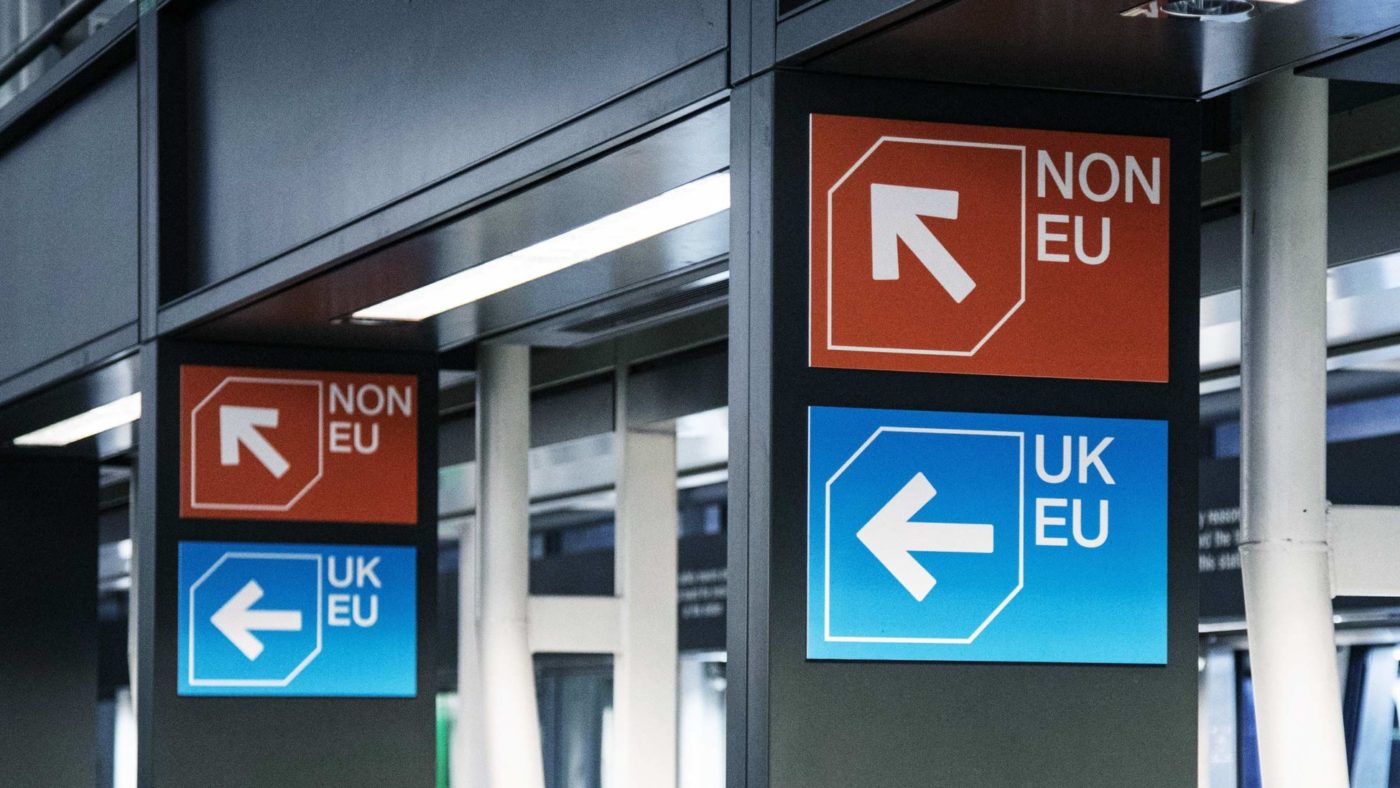Since the UK’s departure from the EU – facilitated by a referendum outcome where immigration was one of the main policy concerns among Leave voters – the debate over how open and tolerant a country we are has raged on.
And it seems those Remainer sophisticates who would have you believe that Boris Johnson leads a ‘white-nationalist’ government have been left with egg on their faces.
Far from ushering in a clampdown on immigration, Home Office immigration figures for 2021 showed that Brexit Britain issued a total of 239,987 work-related visas – 25% higher than the figure for 2019. What was particularly noteworthy was the sharp uptick in successful applications from non-EU migrants. Indeed, since the end of free movement only 10% of last year’s work-related visas were issued to EU nationals. The number of foreign students has also sharply increased, hitting a record high of 416,000 – up by more than a half compared with 2019.
While his predecessor Theresa May’s preference was to both significantly reduce EU migration and place strict limits on non-EU migration, Johnson appears remarkably relaxed over the latter – curiously for a politician often described by his opponents as some kind of tub-thumping nativist.
And while Home Secretary Priti Patel has come under fire from various quarters over the Rwanda asylum plan, she reacted to the latest figures by saying that ‘immigration has enriched our nation through the ages and continues to do so’ and that people from the world over are ‘contributing to our country in many ways across our economy, society and culture’.
The relatively liberal attitude towards non-EU migration is a fundamental pillar of the UK’s post-Brexit internationalist identity – fostered by a New York-born prime minister who represents a Leave-voting, ethnically diverse seat in west London. Though the debate on immigration was often obsessed with the ‘Australia-style’ points system, the UK’s skills-orientated approach more closely resembles the ‘liberal-conservative’ compromise found in Canada – a country whose attitude to immigration is both tolerant and selective. For all Justin Trudeau’s failures, he presides over a liberal democracy with high levels of social cohesion, a strong sense of nationhood and (even after the truckers’ protests) a good level of public confidence in the political system.
One of the interesting aspects of the recent immigration figures is the proportion of newcomers from English-speaking countries such as the US, India, Nigeria and Pakistan. To many voters that will make a lot more sense than the free-for-all that freedom of movement offered. A controlled immigration system that puts language skills and shared cultural and historical ties at its heart is clearly a better fit from a social cohesion perspective than the one that preceded it. Compatibility between the UK and strategically important Commonwealth partners in terms of legal system and political arrangements, should also be recognised in the context of ‘pro-integration’ immigration policy.
Therein lies one of the great paradoxes of the Remainer creed: they bellowed repeatedly about how ‘racist’ Brexiteers were, while insisting on maintaining an immigration system that mostly benefited white Europeans. Gone is the absurdity whereby a low-skilled European worker with no command of English could stroll into the UK, while an English-speaking doctor from Chennai would face a thicket of bureaucratic obstacles. Indeed, a substantial proportion of ethnic minority Britons voted for Brexit on that very basis – that their own friends and relatives who had obvious ties to the UK were struggling to come here, while others with no connection to Britain had no such impediment.
The UK’s very own ‘liberal-conservative’ compromise on immigration is not only decidedly more pro-cohesion than systems of the past – it is strategically vital in terms of re-orientating Britain towards its Commonwealth and Anglophone allies. Far from ‘pulling up the drawbridge’, we now have an immigration system that combines openness, tolerance and the control that the Brexit campaign was all about.
Click here to subscribe to our daily briefing – the best pieces from CapX and across the web.
CapX depends on the generosity of its readers. If you value what we do, please consider making a donation.


